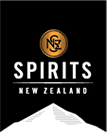Salut to Cognac
Cognac is considered one of the finest and most sophisticated spirits available despite being discovered by accident. A Dutchman created it in the sixteenth century when wine was the main export product in Europe. He was trying to remove water from wine through distillation to allow for more wine to be loaded into the cargo hold. The water was then added back to the wine concentrate once it arrived at the destination. The spirit was so delicious however, that many people never bothered to add the water. This by-product became known as brandy, meaning wine distilled from fruits such as grape, apple, blackberry and apricot.
Based on the region and the fruit used, brandy can be divided into several categories, of which Cognac is one. Cognac is basically a regional brandy – made in the Cognac region in the Southwest of France. True, authentic Cognac is only made in this province, which is made up of six areas; Grande Champagne, Petite Champagne, Bois, Fins Bois, Borderies, and Bons Bois.
Ironically, Cognac is an aged spirit that begins life as a young undistinguished wine made from the white wine grape, ugnic blanc. The whole grape, including the skin and seeds is used in the process.
Cognac was discovered when brandy was distilled twice. Distilled in pot stills, it is then stored in new oak casks for one year before being transferred to used oak casks for aging. Although there are a number of different brandies produced around the world, “all cognac is brandy but not all brandy is cognac”.
It is typically around 40% alcohol by volume when it is bottled and has been enjoyed for centuries on its own, as a cocktail or a cooking ingredient, particularly in dessert sauces.
Surprisingly, the French are not big drinkers of France’s premier brandy, making up just 7% of the world market for Cognac. Elsewhere however, Cognac is immensely popular, particularly in Asia and the United States of America. This may have been helped by the inclusion of well-known Cognac brands featuring in the music videos and lyrics of famous black rappers like Busta Rhymes and P Diddy.
Because Cognac is a spirit that originates from wine, the end result is very complex in taste, texture and style. Cognac can be described as a sophisticated brandy, delicate, light, fragrant and carrying subtle tones of violet, wood, chalk, flint, fruit, and soil. A drink with elegance and charm, Cognac is a deep amber colour, well known for having a rich, slightly sweet flavour of wood, tannin and alcohol.
The labelling on Cognac’s tells a lot about its age and quality. VS (Very Superior), or one to five-star Cognacs feature blends that have been aged at four years, though many distillers age their VS Cognacs longer. VSOP (Very Superior Old Pale) Cognacs must have spent a minimum of four and a half years in the barrel, although many producers often age their VSOPs for eight years or more. XO (Extra Old), Napoleon or Extra Cognacs must have been aged in wood for a minimum of six and a half years, however, since this category also includes all of the older Cognacs, many are more than 30 or 40 years old.
A good strategy is to stock a well-known and respected VS-style cognac as a basic brand for mixing and then a higher more premium style, such as VSOP or XO, for when consumers are looking to trade up for a special occasion.
Cognac is best served at room temperature in a tulip shaped glass. A common misconception is that Cognac is better when heated by a candle. This is simply not true.
Purists believe Cognac should be enjoyed neat and believe adding a mixer or ice detracts from its distinctive flavours and characteristics. However, plenty of cocktails contain Cognac and it is increasingly popular as a refreshing aperitif mixed with water, cola, tonic water or ginger ale.
Side bar/s:
Cognac Age Indications
| Age Indication on Label | Translation | Minimum age of youngest spirit |
| V S – 1 to 3 stars | Very Superior | 4 years |
| V O | Very Old | 4.5 years |
| V S O P | Very Superior Old Pale | 4.5 years |
| X O | Extra Old | 6.5 years |
· Hennessey
· Camus
· Courvoisier
· Remy Martin
· Martell
Contact Info
Spirits New Zealand
PO Box 10 612
Wellington 6143
New Zealand
Ground Floor
17 Garrett Street
Te Aro
Wellington
Telephone : +64 4 473 8054
Email: admin@spiritsnz.org.nz


